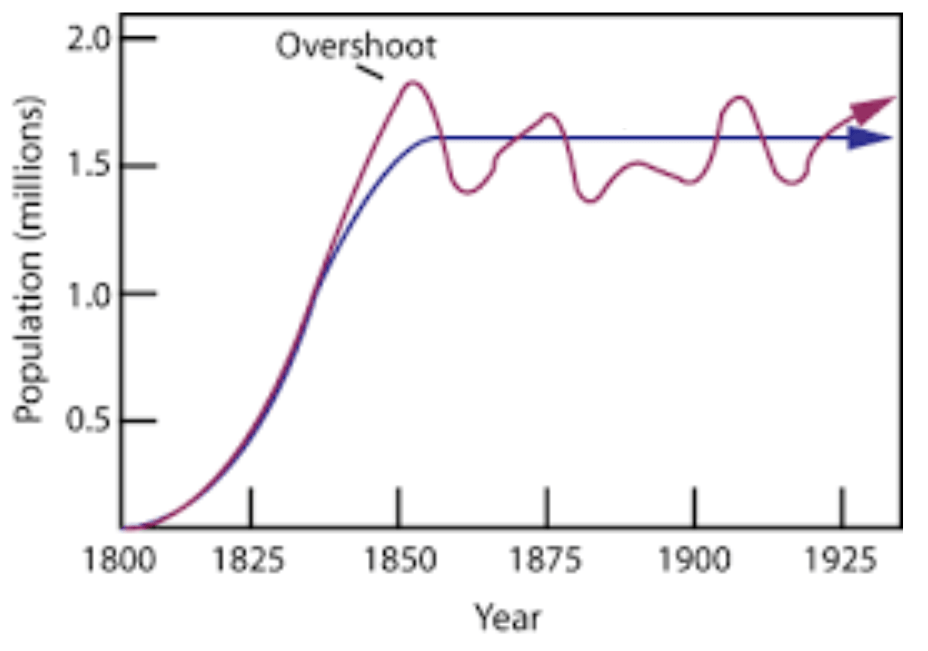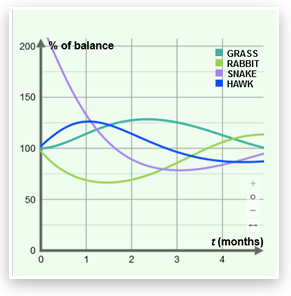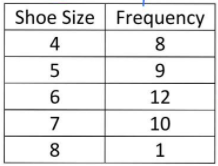Organizing data into visual representations and drawing conclusions is this important step

The blue line here refers to the population's _____________
What is carrying capacity?
(Make sure you can define this term!)
This type of organism derives its energy by consuming other organisms
What is a heterotroph?
(How is this different from an autotroph?)
This level of biological organization refers to all the organisms of one species living in the same ecosystem
What is a population?
(Do you know the other levels of biological organization?)
One reason biodiversity is valuable to ecosystems
The more biodiverse an ecosystem is, the more likely it is to adapt to change and survive (think coral reefs)
https://www.conservation.org/blog/why-is-biodiversity-important
The first step of the scientific process
What is "Observe/Ask a question?"

This predator-prey interaction graph tells us that the relationship between these species is _______
Cyclical
This trophic level obtains their energy by hunting herbivores
What are secondary consumers?
(Can you name/describe the other trophic levels?)
The name for this type of diagram
trophic pyramid
or
energy pyramid
Barnacles growing on a whales back, receiving transportation and access to food, but not harming the whale, is an example of this interaction between species
What is commensalism?
(Do you know the other types of interactions between species?)
To share their findings with the world, scientists need to do this
What is "Report conclusions/Publish results?"
A. The wolf population change is affecting the elk population change
B. The elk population change is affecting the wolf population change
A
availability of sunlight, availability of water, disease, temperature, consumer population, etc.
(Make sure you can define limiting factors and identify them when necessary!)

Biotic or abiotic?
Biotic
What are detritivores?
This group in an experiment is used as a baseline for measurement- no experiment is done on them.
What is the control group?
(Make sure you know- control vs. experimental group; independent vs. dependent variable)

What would cause the rabbit population to decrease over the first time unit (month) in the graph?
What is overpopulation of predators (there are too many snakes!)?
The trophic level of the monkey in this food web
What is quarternary?
(Do you know how to find a trophic level on a food web?)
An organism that consumes both plant and animal matter
(Do you know the other types of feeding relationships?)
What is a grazer?
Catfish are grazers.
Browsers are another type of herbivore.

This table shows the number of people with each shoe size in a class. What is the average shoe size?
What is 5.7?

The trend in the graph here suggests what?
The coral reef is warming and bleaching is increasing
On average, this % of energy flows from one trophic level to the next
What is 10%?
(REMEMBER this is just a rule of thumb- we've seen examples where this is not true)
Without this population, an ecosystem can collapse
What is a keystone species?
(What examples of keystone species do you know?)

This type of organism creates its own food, but not from sunlight
What is a chemautotroph/chemoautotroph?